This is a set of four reading comprehension assessments that require students to analyze two texts on the same topic. There are 2 literature assessments and 2 informational text assessments. Each assessment has a set of paired texts and students are required to answer questions based on both texts. Each assessment also has a written response component where students integrate information from both texts in their response.
At the end of each assessment, students can complete the data tracking sheet to determine which reading skills they are doing well with and which reading skills they need to improve upon. 
The assessments are also available as a self-grading Google form assessment. These assessments can be taken by students who do not have Google student accounts, making them a great addition to this resource and a huge time-saver for you!
STANDARDS:
- CCSS.ELA-LITERACY.RL.5.1
Quote accurately from a text when explaining what the text says explicitly and when drawing inferences from the text. - CCSS.ELA-LITERACY.RL.5.2
Determine a theme of a story, drama, or poem from details in the text, including how characters in a story or drama respond to challenges or how the speaker in a poem reflects upon a topic; summarize the text. - CCSS.ELA-LITERACY.RL.5.3
Compare and contrast two or more characters, settings, or events in a story or drama, drawing on specific details in the text (e.g., how characters interact). - CCSS.ELA-LITERACY.RL.5.4
Determine the meaning of words and phrases as they are used in a text, including figurative language such as metaphors and similes. - CCSS.ELA-LITERACY.RL.5.5
Explain how a series of chapters, scenes, or stanzas fits together to provide the overall structure of a particular story, drama, or poem. - CCSS.ELA-LITERACY.RL.5.6
Describe how a narrator’s or speaker’s point of view influences how events are described. - CCSS.ELA-LITERACY.RL.5.7
Analyze how visual and multimedia elements contribute to the meaning, tone, or beauty of a text (e.g., graphic novel, multimedia presentation of fiction, folktale, myth, poem). - CCSS.ELA-LITERACY.RL.5.9
Compare and contrast stories in the same genre (e.g., mysteries and adventure stories) on their approaches to similar themes and topics. - CCSS.ELA-LITERACY.RL.5.10
By the end of the year, read and comprehend literature, including stories, dramas, and poetry, at the high end of the grades 4-5 text complexity band independently and proficiently. - CCSS.ELA-LITERACY.RI.5.1
Quote accurately from a text when explaining what the text says explicitly and when drawing inferences from the text. - CCSS.ELA-LITERACY.RI.5.2
Determine two or more main ideas of a text and explain how they are supported by key details; summarize the text. - CCSS.ELA-LITERACY.RI.5.3
Explain the relationships or interactions between two or more individuals, events, ideas, or concepts in a historical, scientific, or technical text based on specific information in the text. - CCSS.ELA-LITERACY.RI.5.4
Determine the meaning of general academic and domain-specific words and phrases in a text relevant to a grade 5 topic or subject area. - CCSS.ELA-LITERACY.RI.5.5
Compare and contrast the overall structure (e.g., chronology, comparison, cause/effect, problem/solution) of events, ideas, concepts, or information in two or more texts. - CCSS.ELA-LITERACY.RI.5.6
Analyze multiple accounts of the same event or topic, noting important similarities and differences in the point of view they represent. - CCSS.ELA-LITERACY.RI.5.7
Draw on information from multiple print or digital sources, demonstrating the ability to locate an answer to a question quickly or to solve a problem efficiently. - CCSS.ELA-LITERACY.RI.5.8
Explain how an author uses reasons and evidence to support particular points in a text, identifying which reasons and evidence support which point(s). - CCSS.ELA-LITERACY.RI.5.9
Integrate information from several texts on the same topic in order to write or speak about the subject knowledgeably. - CCSS.ELA-LITERACY.RI.5.10
By the end of the year, read and comprehend informational texts, including history/social studies, science, and technical texts, at the high end of the grades 4-5 text complexity band independently and proficiently.
***************************************************************************
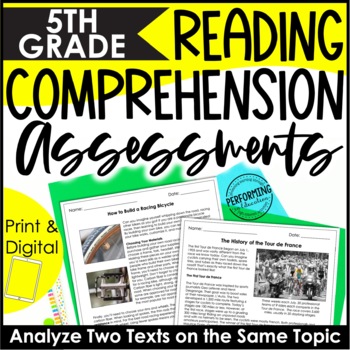
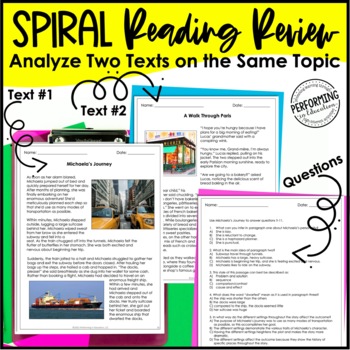
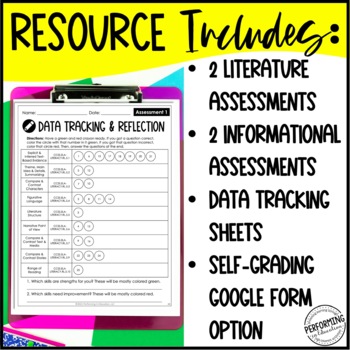
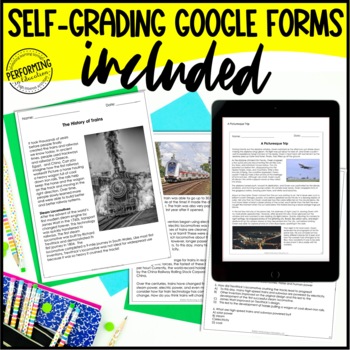

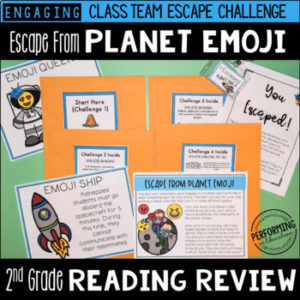
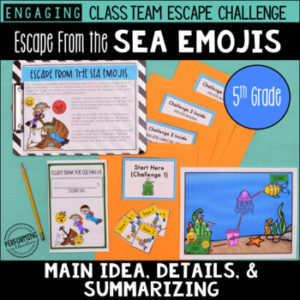


Reviews
There are no reviews yet.